Video
Sign up for our newsletter
We summarize the week's scientific breakthroughs every Thursday.
-
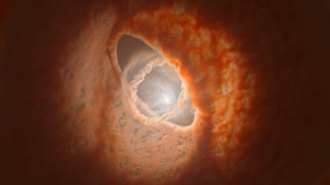 Space
SpaceA weirdly warped planet-forming disk circles a distant trio of stars
The bizarre geometry of a disk of gas and dust around three stars in the constellation Orion could be formed by “disk tearing” or a newborn planet.
-
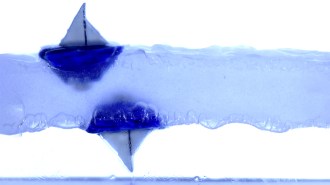 Physics
PhysicsToy boats float upside down underneath a layer of levitated liquid
The upward force of buoyancy keeps objects afloat even in unusual conditions.
-
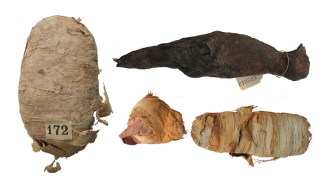 Archaeology
ArchaeologyX-rays reveal what ancient animal mummies keep under wraps
A new method of 3-D scanning mummified animals reveals life and death details for a snake, a bird and a cat.
-
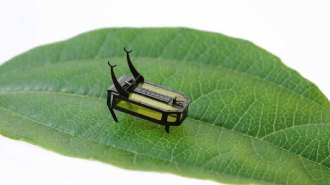 Tech
TechMethanol fuel gives this tiny beetle bot the freedom to roam
A new robot insect uses energy-dense methanol as fuel, not batteries. It could be a blueprint for future search-and-rescue bots with long run times.
By Carmen Drahl -
 Health & Medicine
Health & MedicineHuman sperm don’t swim the way that anyone had thought
High-speed 3-D microscopy and mathematical analyses reveal that rolling and lopsided tail flicks keep the cells swimming in a straight line.
By Jack J. Lee -
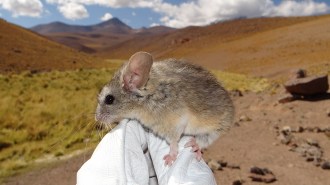 Animals
AnimalsA South American mouse is the world’s highest-dwelling mammal
At 6,739 meters above sea level, the yellow-rumped leaf-eared mouse survives low oxygen and freezing conditions atop a dormant volcano.
By Jack J. Lee -
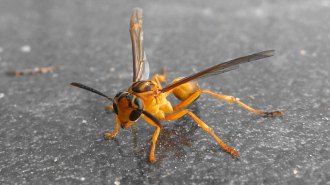 Animals
AnimalsA wasp was caught on camera attacking and killing a baby bird
Some wasps scavenge carrion or pluck parasites off birds, but reports of attacks on live birds are rare.
-
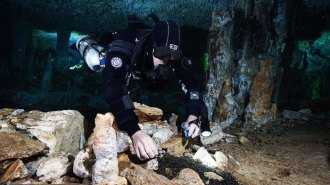 Humans
HumansUnderwater caves once hosted the Americas’ oldest known ochre mines
Now-submerged chambers in Mexico’s Yucatán Peninsula contain ancient evidence of extensive red ochre removal as early as 12,000 years ago.
By Bruce Bower -
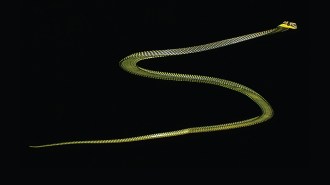 Life
LifeHere’s how flying snakes stay aloft
High-speed cameras show that paradise tree snakes keep from tumbling as they glide through the sky by undulating their bodies.
-
 Health & Medicine
Health & MedicineWhy scientists say wearing masks shouldn’t be controversial
New data suggest that cloth masks work to reduce coronavirus cases, though less well than medical masks.
-
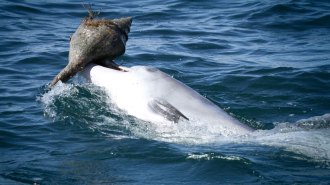 Animals
AnimalsDolphins can learn from peers how to use shells as tools
While most foraging skills are picked up from mom, some bottlenose dolphins seem to look to their peers to learn how to trap prey in shells.
By Jack J. Lee -
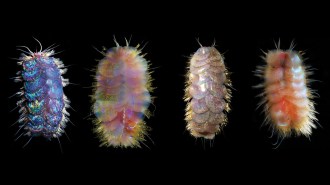 Animals
AnimalsNew species of scaly, deep-sea worms named after Elvis have been found
A genetic analysis sheds new light on funky scale worms with glittery, scales reminiscent of sequins on the “The King’s” iconic jumpsuits.